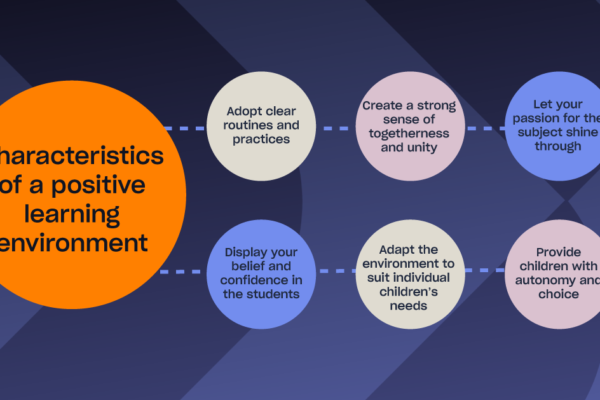Introduction to primary and secondary concepts
In our daily lives, we encounter a multitude of concepts that shape our understanding of the world around us. Two fundamental types of concepts are primary and secondary concepts. These concepts serve as building blocks for our knowledge and play a crucial role in various aspects of our lives, including critical thinking, problem-solving, and education. In this article, I will delve into the significance of primary and secondary concepts and why understanding them is essential.
Understanding primary concepts
Primary concepts are the fundamental ideas or notions that form the foundation of any discipline or field of study. They are the core principles that help us make sense of complex theories and ideas. For example, in mathematics, primary concepts include numbers, addition, subtraction, multiplication, and division. These concepts are necessary to understand and solve more advanced mathematical problems. Similarly, in literature, primary concepts encompass basic elements such as plot, character, setting, and theme. Without a solid understanding of these primary concepts, comprehending more complex literary works becomes challenging.

Examples of primary concepts in different fields
To further illustrate the significance of primary concepts, let’s explore a few examples in different fields. In science, primary concepts include matter, energy, gravity, and force. These concepts serve as the foundation for understanding the laws of physics and explaining natural phenomena. In history, primary concepts include events, dates, individuals, and civilizations. These concepts allow us to analyze and interpret historical events and their impact on society. Whether it’s art, psychology, or any other discipline, primary concepts are essential for developing a comprehensive understanding of the subject matter.
Importance of primary concepts in critical thinking
Primary concepts are vital in developing critical thinking skills. By understanding the fundamental ideas in a particular field, we can analyze and evaluate more complex information effectively. For instance, in critical thinking, primary concepts help us identify logical fallacies, distinguish between facts and opinions, and evaluate the validity of arguments. Without a solid foundation in primary concepts, our ability to think critically and make informed decisions would be severely compromised.
Exploring secondary concepts
While primary concepts form the bedrock of knowledge, secondary concepts build upon and expand our understanding of primary concepts. Secondary concepts are more specialized and nuanced ideas that deepen our knowledge within a specific area. They provide context and additional insights, allowing us to explore complex topics in greater depth. For example, in mathematics, secondary concepts include algebra, geometry, calculus, and probability. These concepts build upon the primary concepts and allow us to solve more advanced mathematical problems.
Examples of secondary concepts in various disciplines
Secondary concepts can be found in various disciplines. In biology, secondary concepts may include genetics, evolution, ecology, and cellular biology. These concepts help us explore the intricacies of life and understand the interconnectedness of living organisms. In philosophy, secondary concepts may include ethics, metaphysics, epistemology, and logic. These concepts enable us to delve into profound questions about the nature of reality, knowledge, and morality. Secondary concepts enrich our understanding by providing a more nuanced perspective within a specific field of study.
Relationship between primary and secondary concepts
Primary and secondary concepts are interconnected, forming a symbiotic relationship. Secondary concepts rely on primary concepts as their foundation, and primary concepts gain depth and complexity through the exploration of secondary concepts. Think of it as a tree with primary concepts as the roots and secondary concepts as the branches. Without strong roots, the branches cannot flourish, and without branches, the roots cannot grow further. Both primary and secondary concepts are essential for a comprehensive understanding of any subject matter.
The significance of primary and secondary concepts in education
In education, primary and secondary concepts play a vital role in curriculum design and student learning. By introducing primary concepts at an early stage, educators establish a solid foundation for students to build upon. As students progress, secondary concepts are introduced to expand their knowledge and promote critical thinking. This approach ensures a well-rounded education that fosters deep understanding rather than superficial memorization. By incorporating both primary and secondary concepts, educators enable students to connect the dots and see the bigger picture.
Incorporating primary and secondary concepts in problem-solving
The application of primary and secondary concepts in problem-solving is invaluable. When faced with a complex problem, breaking it down into primary concepts allows us to identify the underlying principles involved. Once we have a clear understanding of the primary concepts at play, we can then apply secondary concepts to explore potential solutions and strategies. This approach enhances our problem-solving abilities by utilizing a systematic and structured approach, leading to more effective and innovative solutions.










Comments on " Why Primary and Secondary Matter: Exploring the Significance of these Essential Concepts" :